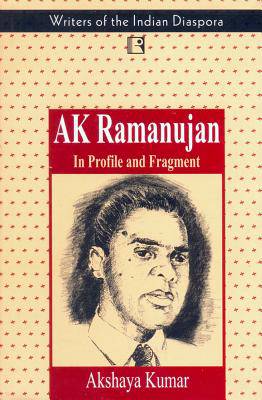
- Afhalen na 1 uur in een winkel met voorraad
- Gratis thuislevering in België vanaf € 30
- Ruim aanbod met 7 miljoen producten
- Afhalen na 1 uur in een winkel met voorraad
- Gratis thuislevering in België vanaf € 30
- Ruim aanbod met 7 miljoen producten
Zoeken
Omschrijving
"The reputation of Ramanujan the translator eclipses the claims of Ramanujan the poet. This book seeks to correct this critical lopsidedness, as it endeavours to establish his poetry as the mainstay of his creative genius. Akshaya Kumar argues that translation as an enterprise of dialogue and exchange between languages and cultures culminates into poetry - a poetry that imbibes and inheres the desi, the marga and the videshi variants of reality in a frame which is inevitably self-reflexive, dialogic and inter-civilizational. By using tools and concepts from latest theories of postcolonialism, post-structuralism, new historicism and cultural poetics, the author undertakes a rigorous analysis of Ramanujan's poetry in terms of its shifting locations, multi-stranded inter-textuality, subtle political biases and poetics of parody and meta-creativity. In the process rank non-literary issues such as the relationship of academia with poetry, the politics of sudden domination of diaspora writings in the native space, the invasion of theory into poetry, the tyranny of the DNA-code on creativity, and the multiple frames of transience within which a postcolonial diasporic subject can possibly operate, have been taken up to map out the hitherto unheralded dimensions of Ramanujan's poetry. "
Specificaties
Betrokkenen
- Auteur(s):
- Uitgeverij:
Inhoud
- Aantal bladzijden:
- 288
- Taal:
- Engels
Eigenschappen
- Productcode (EAN):
- 9788170338338
- Verschijningsdatum:
- 1/01/2004
- Uitvoering:
- Hardcover
- Formaat:
- Genaaid
- Gewicht:
- 467 g

Alleen bij Standaard Boekhandel
+ 152 punten op je klantenkaart van Standaard Boekhandel
Beoordelingen
We publiceren alleen reviews die voldoen aan de voorwaarden voor reviews. Bekijk onze voorwaarden voor reviews.











